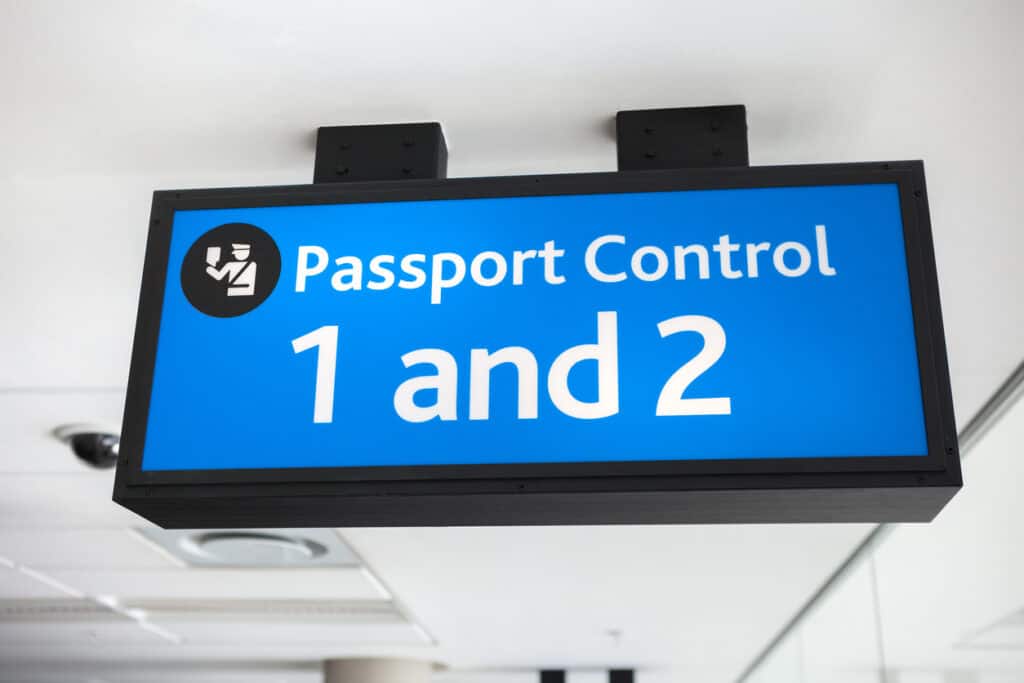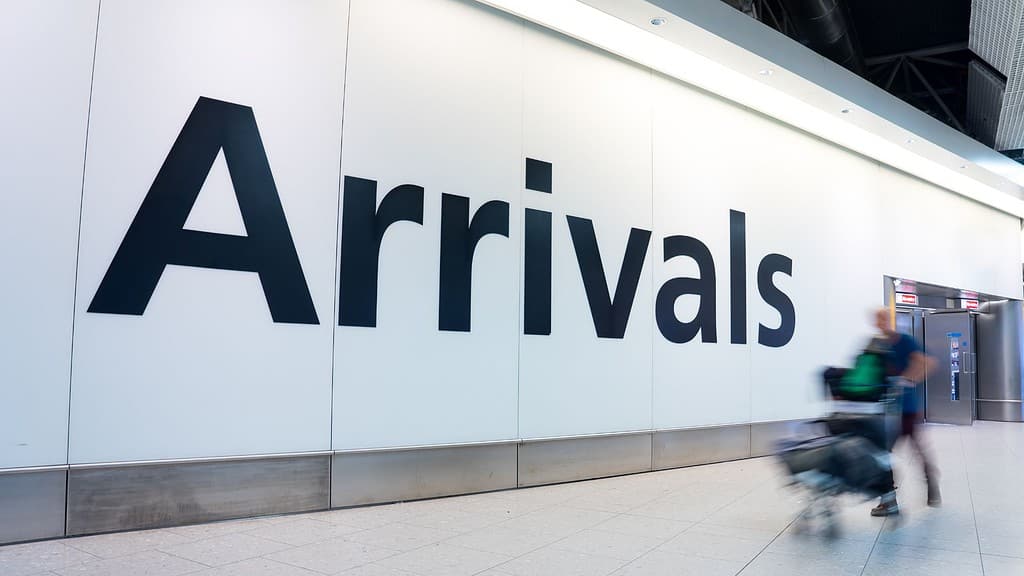We review the MAC’s report and discuss what their recommendations could mean for the future of UK immigration
Nine things we learned from the MAC report
05 Oct 2018
In mid-September, the Migration Advisory Committee (MAC) published a report on European Economic Area (EEA) migration to the UK. The report goes in-depth to analyse the effects that migrants from EEA countries have had on various aspects of the employment landscape, economy and public services in the UK. The MAC have taken existing literature, results from previous MAC reports and have commissioned new studies as part of the consultation to draw conclusions on EEA migration in the UK.
While the conclusions aim to cover the overall effects of EEA migration on the whole of the UK, there are some differences reported in the effects of high-skilled workers and low-skilled workers. High-skilled workers, such as those in science and engineering, are reported to have positive effects on the UK and UK-born citizens while the report suggests some areas of low-skilled migration may not result in net benefits to the UK. These differences are reflected in the shape of the policy recommendations made by the MAC.
One of the strengths of the report is that it compiles a robust evidence base and the findings bust many of the myths that have surrounded and clouded public and political debate on migration in the UK.
Five myths that the MAC report busts
Migrants do not stop Brits from getting jobs
There are no or very little effects of immigration on the employment and unemployment outcomes of the UK-born workforce overall. In other words, the big picture showed that EEA migrants have not affected the ability of UK-born adults to get a job. The evidence showed some variation by skill level of the jobs involved, but the MAC said they weren’t confident the evidence they’d gathered was robust enough to draw a substantial conclusion at a more detailed level.
Migrants do not lower wages for UK residents
Immigration is not a major determinant of UK wage growth for existing residents. Again, the evaluation of the effects of different migrant groups on UK wage growth shows a variation between the skill level of migrants. Given that hourly wages for all groups have grown in real terms over the last 15 years, the effects migrants may have had on wage growth is not significant, positive or negative.
Migrants do not impact on training opportunities for Brits
Overall, there is no evidence migration has a negative impact on upskilling and training the UK-born workforce. Moreover, there is some evidence to suggest that skilled migrants have a positive impact on the quantity of training available to the UK-born workforce, with a one percentage increase in migrant population in a local area leading to a one percent increase in the share of ‘native’ workers training.
Migrants do not affect British children’s education prospects
There is no evidence that migration has reduced parental choice of schools for their children, despite migrant children increasing demand for places. This conclusion for the whole of the UK does not mean that there aren’t localised examples of pressure on school places. The MAC also conclude that higher numbers of migrant children do not worsen the educational attainment of UK-born children. In fact, on average, children with English as an additional language outperform native English speakers based on 2016/17 GCSE results.
EU Migrants do not drain public money
On average, EEA migrants pay far more in taxes than they receive in benefits. In 2016/17, EEA migrants paid £4.7bn more in taxes than they received in welfare payments and public services. Migrants from ‘Old’ Member States are shown to contribute more than migrants from ‘New’ Member States but both groups make net contributions to the UK. This is down to relative employment rates of migrants from ‘Old’ Member states, and that they tend to be more highly-skilled than other migrants and UK natives.
Four measurable benefits of EEA migration
Migrants help to grow UK productivity
Immigration has a positive impact on productivity in the UK, driving innovation and investment in both the UK economy and skills growth in the UK. High-skilled migrants are said to have a more positive effect than low-skilled migrants, but the magnitudes of such differences are subject to a great deal of uncertainty.
Skilled migration makes the UK more innovative
High-skilled immigrants make a positive impact on the levels of innovation to whichever country they move to. This includes increasing numbers of firms engaging in product and process innovation with increased employment of high-skilled migrants and a relationship between foreign skilled labour and the numbers of patents and citations across European countries.
Migrants make services cheaper without directly harming UK workers
Migrants have helped to lower prices of services such as electricians, plumbers and carpenters, without direct evidence that this has lowered the earnings of British service workers.
Migrants make net contributions to UK healthcare through taxes and work
EEA migrants contribute much more to the health service, both in financing and through work, than they consume. Furthermore, there is no evidence that increased migration has led to a decrease in the quality of health care services in the UK, with evidence that immigration reduced outpatient waiting times and no evidence that GP satisfaction levels have decreased with increasing numbers of migrant doctors.
The future of migration
The evidence the MAC gathered and the recommendations they make for a future system are difficult to reconcile. They set out the overall and specific benefits of migration to the UK, and then go on to recommend a highly bureaucratic, costly and restrictive system. If this report was on incremental improvements to the current non-EEA system, we would support many of the recommendations including the call to abolish the Tier 2 cap, to lower the minimum skill-level required to acquire a Tier 2 visa and to abolish the Resident Labour Market Test. However, these are the recommendations the MAC brings forward should the Government to decide to use the current non-EEA immigration system as the starting point for a system to cover all migration to the UK.
We have consistently heard from members and others across the sector that the current Tiered immigration system is far too burdensome. So burdensome that many small companies do not engage with the system because of the long-winded processes and high costs associated with becoming an organisation that can recruit workers from outside of Europe. Sponsoring an individual to come and work in the UK is also one of the most expensive recruitment processes anywhere in the world. Further it is an employer-led system. Not an issue in itself, but there are no provisions for atypical workers such as freelancers or self-employed. The expansion of the current non-EEA system would be detrimental. We recently wrote a letter to the Home Secretary outlining our concerns, making suggestions for a future migration system to utilise the UK’s technological expertise to design a streamlined immigration system that supports research and innovation using the new EEA settlement system as a starting point to build from.
Contrary to many reports, the MAC did not recommend a single system post-Brexit. Rather they said that only in the absence of a deal on immigration between the UK and the EU they concluded that there are no compelling reasons to offer a different set of rules to EEA and non-EEA citizens. The MAC did recommend that there should be no specific route for migration of low-skilled migration, noting the difficulty this would cause for social care sector in particular. They do make recommendations on middle-skilled workers but as they recommend maintaining a minimum salary threshold of £30,000 this could also have detrimental effects across UK science and engineering affecting technical staff in particular.
Comments from the Prime Minister and Home Secretary at Conservative Party Conference have provided an insight in to Government thinking on the future of immigration. The Government appears set to create a single immigration system with no priority for migrants from EU countries. The Prime Minister has referred to a future immigration system that is “skills-based”, giving priority to high-skilled workers and curbing low-skilled migration in line with MAC recommendations. There are also plans being developed for short-term visits to be light touch and checks carried out in advance of arrival to the UK, in a similar way to how the ESTA visa checks are carried out in the US.
A major failing of the MAC report is that it brushes over the operational difficulties of making a more streamlined version of the current non-EEA system in practice. The report says, “There is the risk that restrictions intended to control lower-skilled migration impose a higher bureaucratic burden on higher-skilled migration and hence discourages the skilled migration one would like to encourage: we recommend that if a skill-selective migration policy is introduced steps should be taken to reduce those burdens to minimize this risk”. The recommendations from the MAC, the political mood, and the tone of discussion to date together raise concerns that this is a real risk – that we will discourage the skilled migration one would like to encourage through introducing an overly bureaucratic burdensome system. With a White Paper due out soon, CaSE will continue to push for an immigration system that supports science and engineering and benefits the UK.
Following the publication of the MAC report, we will be updating our immigration evidence base with new sources of evidence. Keep checking back for a one stop shop for key policy papers and evidence reports.
Related resources

A week on from the publication, Policy Manager Camilla d’Angelo takes a look at some of the questions that remain to be resolved and what to expect next for the Immigration White Paper.

Policy Manager Camilla d’Angelo takes a look at what the Immigration White Paper means for attracting international R&D talent to the UK.

In advance of the forthcoming Immigration White Paper, CaSE and 35 other organisations have written to select Westminster Parliamentarians.

This briefing summarises attitudes to immigration, international students and researchers, and their impact on UK R&D. It is based on evidence from a nationally representative survey of 4,100 UK adults in June 2024 and two focus groups in December 2024.